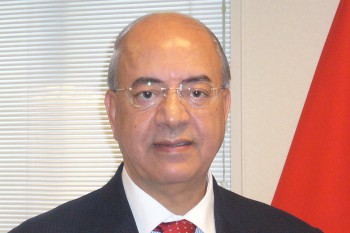Events
King’s Democratization Reform Brings Stability to Society
—– Japan and Morocco have established long-standing friendly relations for 60 years. Which areas do you focus for reinforcing the good bilateral ties?
Based on the friendship between the royal family of Morocco and the imperial family of Japan, the two countries have been maintaining a friendly relationship. There are many Japanese corporations, including auto parts manufacturers, performing business in Morocco, and they are well regarded as the “first private-sector employers” that created over 40 thousand jobs. The two countries are promoting triangular cooperation between Japan, Morocco and other African countries. The important area is human resource development and educational training. There are exchanges among universities and technological institutions, and many Moroccan students are being trained in Japan through “ABE Initiative: Africa Business Education Initiative for Youth”. Also, Morocco is promoting sports exchange and the tourism in Morocco for Japanese people.
—– What are the growing industries for possible Japanese investors in Morocco?
Our first export industries, automotive and aerospace, are growing, especially the foreign corporations. We are also working toward energy self-sufficiency and targeting 52% of power to be from renewable energy by 2030. We are operating the largest wind power park in Africa, and making progress on the world-largest solar power station (Noor 1). COP22 will be held in Marrakesh in November. We also expect more Japanese corporations to enter our agriculture, fisheries, agro-bio, and pharmaceutical industries.
—– Morocco’s political, economic and social democratization has been developed since the new constitution was enacted in 2011.
After the “Arab Spring”, His Majesty the King Mohammed VI started comprehensive political, economic, and social reforms and democratization through the constitutional reform. This has strengthened human rights, freedom of action, and empowering of women. The key to the successful democratization was decentralization through advanced regionalization which revitalized regional economies and reduced gaps between the regions.
—– Despite the wide-spread unrest in Middle East and North Africa, Morocco seems to keep its political and economic stability. What would you identify as the factors leading to its stability?
The King has public support as a guarantor of peace, tolerance, and freedom of religion. Behind Morocco’s stability are its diverse identities and “soft power”. We are also deepening our friendship with African and European countries by training imams at the King Mohammed VI Institute for the Training of Imams, Morchidines and Morchidates and sending instructors. Morocco is a country of moderate Islam, which values “tolerance” and “brotherhood” and is contributing to the peace and stability of the society.
—– How does Morocco respond to the mass migration and refugee issue?
We have deep sympathies toward the refugee crisis, and are working with EU to offer humanitarian support. We generously provide residence permits and job training to refugees who have entered the country. Morocco is changing from a country of transit to a country of immigration for refugees.
—– What outcome do you expect from TICAD VI to be held in Kenya this year?
At TICAD VI, which will be the first meeting to be held in Africa, an important task is to follow up on the successful “ABE Initiative”. The connectivity of the African countries will be promoted by the development in infrastructure, energy, agriculture and fisheries, and healthcare. It will strengthen Africa’s “ownership” of its development and the “partnership” with the international community. We are expecting meaningful and fruitful outcomes for Africa and Japan.
